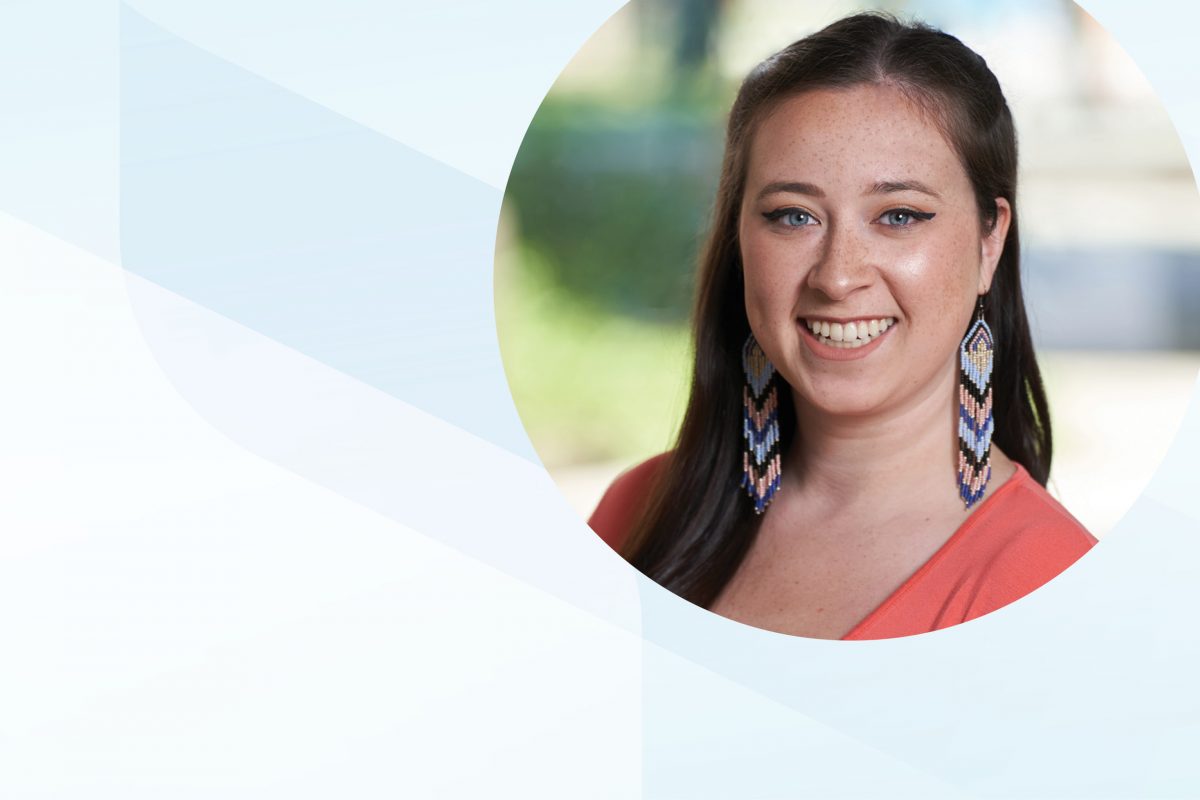
UM 2022 Vanier Scholar: Gabrielle Fontaine.
Inventing new access to cancer screening
Gabrielle Fontaine joins UM as a 2022 Vanier Scholar
Gabrielle Fontaine is a Juno-nominated musician who has always asked the big questions: Why do things behave a certain way? What is our purpose? How can I be of help to others? A lifetime of searching for answers led her to the field of medical physics, where she is developing medical devices that could save lives in remote and lower-income communities.
Fontaine [BSc(Hons)/20] is one of nine Vanier Scholars attending UM this year – the highest number in the university’s history. Vanier Scholars are considered Canada’s top graduate students and receive a scholarship of $150,000 over three years towards their research.
Fontaine, who is Ojibwe from Sagkeeng First Nation, joined the department of physics and astronomy in the Faculty of Science this fall as a PhD candidate.
UM Today caught up with Gabrielle Fontaine to learn more about her and the research she’ll be doing at UM.
WHAT WILL YOU BE WORKING ON IN THE FACULTY OF SCIENCE?
I am designing and testing a small, safe, low-cost breast cancer screening device. Current imaging methods are expensive, large, use fragile equipment, or require trained personnel to operate. This makes it difficult to bring these devices to low-income and remote areas. Our device uses low-powered microwaves, similar to that from a cell phone, and artificial intelligence (AI) to automate breast cancer detection. The device will feature a user-friendly interface so the patient can operate a scan on themselves. The overall size, cost, and complexity of the device will be minimized to ensure portability. Developing such a device will increase access to breast cancer screening in low-income and remote communities.
HOW WILL THIS IMPACT THE BROADER COMMUNITY?
Breast cancer screening is limited in First Nation and northern communities in Canada, and low- and-middle income countries in the international community. This results in inequitable care and disproportionally high mortality rates. A portable microwave detection device can be used in these communities as an initial screening method. If the device detects an abnormality, then the patient can travel to the nearest medical facility for further testing. The goal is to increase access to breast cancer screening so that abnormalities are caught at earlier stages. My research studies the feasibility of such a device in hopes to advance our knowledge on AI-detection and increase the demand for low-cost, portable detection.
WHERE DO YOU SEE YOURSELF IN FIVE TO 10 YEARS?
After I graduate, I plan to start my medical physics residency at a cancer facility in North America. Then, I hope to come back to my family in Winnipeg and work as a medical physicist.
HOW DOES IT FEEL TO RECEIVE A VANIER SCHOLARSHIP?
Initially, I was hesitant to apply because I often underestimate my skills. However, I was motivated by the support from my family and colleagues. When I first found out that I received the award, I was incredibly grateful. I want to be a role-model for young Indigenous women, as others were for me growing up. Representation is very important, and I hope that I can motivate the younger generation to never underestimate themselves.
Meet the rest of UM’s nine Vanier Scholars.






